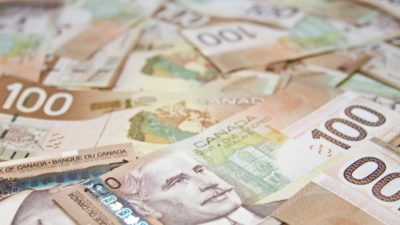Tax season is right around the corner, and this year, there are plenty of changes you need to keep on top of — especially if you invest in a TFSA or pay into EI, there are some opportunities to save on taxes. However, there are other changes coming that could cost you. In this article, I’ll discuss three Canada Revenue Agency tax changes that will affect you going into the 2020 tax season.
CPP enhancement will increase your tax bill
In 2019, the Canada Revenue Agency rolled out CPP Enhancement, a new program designed to increase CPP benefits from one-third to one-fourth of pensionable income. The program won’t start paying out the promised benefits for another 40 years or so, but premiums are going to be higher for the 2019 tax year. That means you can expect a slightly higher tax bill when you file this April.
You’ve got an extra $6,000 in TFSA contribution space
Every year since 2009, the Canadian government has announced a new amount of TFSA contribution room for account holders to use. For 2019 (the year you’ll be filing for), $6,000 was added, bringing that year’s maximum to $63,500. For 2020, the amount has jumped to $69,500.
If you were 18 or older in 2009, you’ll have $69,500 worth of free TFSA space to use during the 2020 tax season (assuming you haven’t made any contributions yet). TFSAs don’t have a “deadline” like RRSPs do, but still, tax season is a great opportunity to get some cash into your TFSA and put it to work for you. If you’re looking for ideas for how to invest your TFSA contributions, ETFs like iShares S&P/TSX 60 Index Fund (TSX:XIU) can be great choices. With market-average returns and dividend income, they provide two types of taxable gains to take advantage of your TFSA’s tax-free status.
Your EI premiums could be slightly lower
Another big tax change that took effect in 2019, which you’ll notice when filing taxes this year, is a reduction in Employment Insurance (EI) premiums. Last year, EI premiums were reduced from $1.66 to $1.62 per $100 of insurable earnings. If you’re conventionally employed, EI premiums are taken out of your paycheque automatically, so you may not notice this reduction. If you’re self-employed, however, these lower EI premiums might result in a pleasant surprise when you go to file taxes in April.
If you save money on EI premiums in April and get a larger refund than you expected, it would be a great opportunity to get some extra cash into your TFSA. Even if you don’t have any individual stocks you’re interested in buying, you can always stash some money into an ETF like XIU (as mentioned above), or any combination of money market funds, bond funds, or anything else that suits your risk profile. For Canadian investors, XIU is an excellent index fund to consider, but, as always, you should diversify as much as possible, spreading your risks across several categories of assets.








